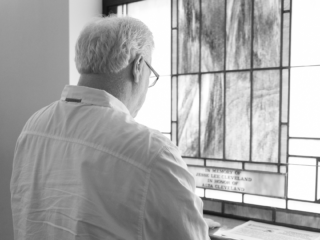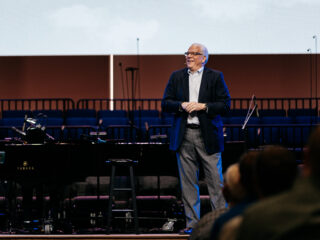Regardless of what discipline you might study, one issue continues to be discussed and analyzed more than any other: the crisis of leadership. Whether you’re reading about business, politics, social justice, or church life, the issue is always leadership — or the lack of it. Corporations can’t find CEOs who can navigate the complex corporate waters of an ever-changing world economy and the competing expectations of social justice activists. Universities can’t find presidents to balance the competing needs and demands of their faculties, boards, and students. Shareholders are looking for someone who can meet Wall Street expectations and make consumers feel good about using their products.
And local churches can’t find the pastors they need. There is a growing fear among denominational leaders that there will soon be a shortage of qualified pastors for their churches across the nation. There are a lot of reasons for this. For starters, it’s rare to identify generational pastors anymore. You rarely talk to a pastor today whose father was a pastor, and his grandfather was a pastor, going back several generations. Few preacher’s kids want to become pastors themselves. Another reason is that most churches don’t pay well enough. Trying to live within shouting distance of the church’s median income while not being paid a median income puts untold pressure on ministers and their families.
But those are topics for someone else’s post. I want to talk about the other crisis in local churches. That’s the crisis of “followship.” There may not be a lack of leaders in local churches as much as there is a lack of followers. As I have mentioned before, COVID-19 didn’t break anything, but the pandemic revealed a lot that was broken. One of the things that pastors found out about their churches is that everyone thinks they are an expert.
We had health experts who would explain to us why we were, one, overreacting to COVID-19, or two, not taking COVID-19 seriously enough. If we as a church didn’t agree with their point of view, they would leave the church. Surely a pastor could not be a servant of God and be this wrong about COVID-19.
We had constitutional experts explaining to us why we couldn’t require masks in the church or why we HAD to require masks in the church. Again, if we didn’t agree with them, they would leave the church.
A lot of pastors found out that they didn’t have as many members as they thought. They simply had a group of individuals who had decided to walk together for a little while. There was no connection with each other and there was no commitment to each other. They were just keeping each other company on this part of their journey. The old preachers used to talk a lot about the “one another” passages in the Bible. You know – “love one another,” “bear one another’s burdens,” “pray for one another,” etc. Most of our churches haven’t done the “one another” commands very well and when the pandemic hit, that’s why we felt like we were all on our own.
Part of the problem is that most people don’t have a Biblical ecclesiology — a doctrine of the church. Most of us believe that the church is just like any other human organization. Nothing could be further from the truth. The most difficult problems in a church happen when we try to run our churches the same way we run any human institution. The church isn’t a human institution. The church is God-formed through His Word and Spirit to fully embody the person and mission of Jesus on earth.
Because it’s God’s possession and creation, the church has to be run God’s way. The Spirit calls out leaders from the congregation. Regardless of the form of church governance, the Spirit gives every congregation elders. These elders have walked with Jesus for a long time and are familiar with His ways. These elders may or may not be business or community leaders. God looks at the heart of the leader, not the outward appearance. Most church members don’t pay enough attention to what God is doing in their church to recognize the elders whom God has anointed. They end up paying attention to people they like or admire and because of this, most churches make the age-old mistake of choosing Saul and not looking hard enough for David.
Second, most church members don’t understand their church’s mission in the world. They don’t understand what God is up to in His world and how He desires to use our congregations in His greater redemptive mission. As a result, too many church members think the church is another public service organization whose purpose is to serve their family’s needs.
Nope. Sorry. The church isn’t about you. It’s not about me. It’s about Jesus. The church is about Jesus’ mission to redeem a lost world. That means Jesus is always in charge of His church. We’re all followers of Christ. This means that sometimes, as the senior pastor of my church, I’ll follow someone else because, at that moment in time, God has chosen someone else to lead our church in a particular part of our mission. Sometimes, I’m the leader. Sometimes, I’m the follower.
If our church is going to have good leaders, our church must develop good followers. All of us have to be able to discern how God is working and recognize the person whom God has chosen to lead. When we know that, we would do well to fall in line and be a good follower. Be the kind of follower you would want if you were the leader. Remember, it’s not about who’s in charge. It’s about the mission.
The Book of Judges ends with a foreboding description of the tribes of Israel by saying that everyone did what was right in their own eyes. That didn’t turn out so well for the tribes of Israel. It won’t turn out well for us either — unless we can change from being a group of individuals who keep each other company to a body with members, some of whom are leaders, and all the rest are followers.









